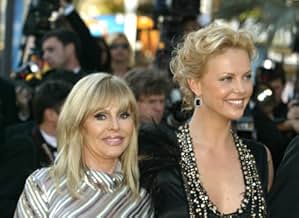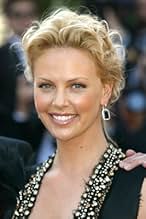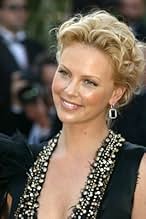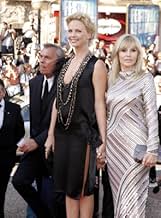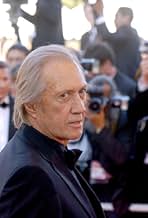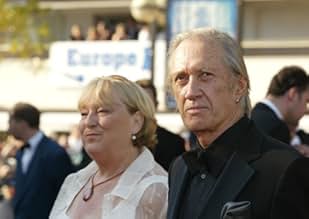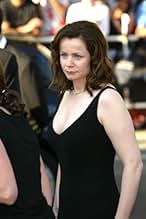VALUTAZIONE IMDb
6,9/10
15.556
LA TUA VALUTAZIONE
L'adattamento cinematografico del libro di Roger Lewis sull'attore meglio ricordato come l'ispettore Clouseau nei film di Pink Panther.L'adattamento cinematografico del libro di Roger Lewis sull'attore meglio ricordato come l'ispettore Clouseau nei film di Pink Panther.L'adattamento cinematografico del libro di Roger Lewis sull'attore meglio ricordato come l'ispettore Clouseau nei film di Pink Panther.
- Regia
- Sceneggiatura
- Star
- Vincitore di 9 Primetime Emmy
- 31 vittorie e 35 candidature totali
Edward Tudor-Pole
- Spike Milligan
- (as Edward Tudor Pole)
Recensioni in evidenza
Stephen Hopkins' "The Life and Death of Peter Sellers" is a monumental film that undertook the difficult task of understanding the late Peter Sellers. This unique actor, with such a complicated personality and who lived such a turbulent life, comes alive in this HBO production based on the book by Roger Lewis, with an adaptation by Christopher Markus.
Peter Sellers covered quite a lot of ground during his life. He was one of the best actors working in the England of the fifties, working in all those charming comedies that made him a star in his native land, but alas, was not well known in America because he had not yet been hired by Hollywood until his "discovery" by director Blake Edwards, who offered him the part of Inspector Clouseau after Peter Ustinov had turned down the role.
Prior to his worldwide recognition, Mr. Sellers had to work a lot in order to make ends meet. Life with his first wife Anne came to an abrupt end, when he discovered she had fallen for the interior decorator the couple had hired. Then, there is the fascinating episode with Sophia Loren, in which Mr. Sellers, in his mind, begins to think he is in love with her, only to be rebuked by Ms. Loren, a woman who was happily married to Carlo Ponti, and had no desire to become the second Mrs. Sellers.
The third woman in Mr. Sellers life is the beautiful, but much younger, Britt Ekland. From the start, one can figure this union was not to last. The age difference and the different cultures indicate these two were completely mismatched, as we get to watch in painful detail how the marriage disintegrates.
Mr. Hopkins makes his star, Geoffrey Rush, assume a lot of roles in addition of the main one, Peter Sellers. Geoffrey Rush shows his versatility in playing them with great style. His biggest achievement seems to be how he captures the essence of Peter Sellers, the man, and expose him to us in all his complexity.
The acting is superb. Emily Watson and Charlize Theron are seen as Anne and Britt, two women that left their mark in the life of Mr. Sellers. Both are excellent in the film. Miriam Margoyles plays Peg Sellers. John Lighgow is Blake Edwards, the man who elevated the actor to an international acclaim.
The film is a documentary, as well as a biopic about this man who gave a lot of joy to movie fans through his films. Geoffrey Rush has to be thanked for bringing him to life, as well as the director, Stephen Hopkins for giving us an understanding on what it was to be Peter Sellers.
Peter Sellers covered quite a lot of ground during his life. He was one of the best actors working in the England of the fifties, working in all those charming comedies that made him a star in his native land, but alas, was not well known in America because he had not yet been hired by Hollywood until his "discovery" by director Blake Edwards, who offered him the part of Inspector Clouseau after Peter Ustinov had turned down the role.
Prior to his worldwide recognition, Mr. Sellers had to work a lot in order to make ends meet. Life with his first wife Anne came to an abrupt end, when he discovered she had fallen for the interior decorator the couple had hired. Then, there is the fascinating episode with Sophia Loren, in which Mr. Sellers, in his mind, begins to think he is in love with her, only to be rebuked by Ms. Loren, a woman who was happily married to Carlo Ponti, and had no desire to become the second Mrs. Sellers.
The third woman in Mr. Sellers life is the beautiful, but much younger, Britt Ekland. From the start, one can figure this union was not to last. The age difference and the different cultures indicate these two were completely mismatched, as we get to watch in painful detail how the marriage disintegrates.
Mr. Hopkins makes his star, Geoffrey Rush, assume a lot of roles in addition of the main one, Peter Sellers. Geoffrey Rush shows his versatility in playing them with great style. His biggest achievement seems to be how he captures the essence of Peter Sellers, the man, and expose him to us in all his complexity.
The acting is superb. Emily Watson and Charlize Theron are seen as Anne and Britt, two women that left their mark in the life of Mr. Sellers. Both are excellent in the film. Miriam Margoyles plays Peg Sellers. John Lighgow is Blake Edwards, the man who elevated the actor to an international acclaim.
The film is a documentary, as well as a biopic about this man who gave a lot of joy to movie fans through his films. Geoffrey Rush has to be thanked for bringing him to life, as well as the director, Stephen Hopkins for giving us an understanding on what it was to be Peter Sellers.
The Life and Death of Peter Sellers has to be one of the most creative, complex and revealing non-documentary movies ever made about an actual person, living or dead, and the inspired casting of Geoffrey Rush is spot on - he's magnificent in all the various and sundry Sellers guises, especially the ones from Dr. Strangelove and The Pink Panther's bumbling inspector. The rest of the casting is excellent too, particularly Charlize Theron as the second "B.E." in Seller's life, Britt Ekland.
The thing I liked most about this movie was how the script let us see how Sellers created his characters - how he was constantly "in character" or inbetween characters. He admits in the movie to being an empty vessel, with no personality of his own; this is what allowed him to be such an insufferably cruel bastard to all the people who were closest to him: he used his immersive, endlessly obsessive artistic process as a weapon and, ultimately, as a substitute for being human.
It's always brutally hard as an artist to find the balance - you have to be true to your work, naturally, and as an actor especially you're constantly redefining your inner reality, but you can't do it at the expense of the people who love you and whom you profess to love; there has to be emotional and mental discipline otherwise you become psychotically self-indulgent, as this film showed Sellers to be. The most poignant scene in the movie for me was when Sellers, in his typically childish and deranged state, tells his little daughter, "I'm an empty shell, there's nobody inside," words to that effect, and she answers, with a sad wisdom that no child should have to learn to possess, "Yes, daddy."
The thing I liked most about this movie was how the script let us see how Sellers created his characters - how he was constantly "in character" or inbetween characters. He admits in the movie to being an empty vessel, with no personality of his own; this is what allowed him to be such an insufferably cruel bastard to all the people who were closest to him: he used his immersive, endlessly obsessive artistic process as a weapon and, ultimately, as a substitute for being human.
It's always brutally hard as an artist to find the balance - you have to be true to your work, naturally, and as an actor especially you're constantly redefining your inner reality, but you can't do it at the expense of the people who love you and whom you profess to love; there has to be emotional and mental discipline otherwise you become psychotically self-indulgent, as this film showed Sellers to be. The most poignant scene in the movie for me was when Sellers, in his typically childish and deranged state, tells his little daughter, "I'm an empty shell, there's nobody inside," words to that effect, and she answers, with a sad wisdom that no child should have to learn to possess, "Yes, daddy."
I never thought I'd find myself feeling sorry for Britt Ekland: this film of Peter Sellers' life and career achieved that. One must assume that many of the details are based in truth - his behaviour to his children in particular was awful.
There is no doubt that Sellers was an amazing talent, and troubled as so many are (Tony Hancock, for instance) - the toll that took on those closest to him must have been great.
But to the film: it's worth seeing for the extraordinary performance from Geoffrey Rush, uncannily portraying Sellers. There is fine support, in particular from John Lithgow as Blake Edwards, Miriam Margoyles as Sellers' mother, and Charlize Theron's Ekland.
There is no doubt that Sellers was an amazing talent, and troubled as so many are (Tony Hancock, for instance) - the toll that took on those closest to him must have been great.
But to the film: it's worth seeing for the extraordinary performance from Geoffrey Rush, uncannily portraying Sellers. There is fine support, in particular from John Lithgow as Blake Edwards, Miriam Margoyles as Sellers' mother, and Charlize Theron's Ekland.
For anyone interested in Peter Sellers life and work, this film is certainly worth watching, if for nothing more than the incredible re-creations of scenes from Sellers' films. Geoffrey Rush is transformed into a nearly dead-ringer for Sellers, through the magic of make up and prosthetics. But as talented as he may be, no one can recreate the subtleties of the master, especially the use of his eyes
Sellers' eyes were by far the funniest aspect of his physicality: narrowing, widening, always moving, punctuating his actions and illuminating the emotions within, even as part of the most farcical of performances.
Such a rich and varied life would lend itself to a miniseries but of course it would be a copout to suggest that at least a glimmer into the life of a man couldn't be done successfully within two hours. What this movie drove home for me was how terribly short the human lifespan really is, and how little time we have to truly discover ourselves and come to terms with our own frailties. I felt that the basis of Sellers unhappiness, which manifested itself in inexcusable cruelty to his family, friends and co-workers, was a direct result of his childhood, which was never really addressed in this film. It was, in his own words to Michael Parkinson, not a very happy time in his life. Growing up in the theater circuit, being in the company of boozy and abusive 'theatricals', and being raised by a domineering mother and what I gather was a rather passive and emotionally unavailable father set the stage for a man who obviously felt deprived of the things that give us self-esteem and confidence. No one in his adult life could give him the things he should've received from his parents as a child, and he took out that frustration on those closest to him.
Also interesting were the glimpses of his fellow Goons (Spike Milligan and Harry Secombe) at various chapters in his life-in the church at his mother's funeral, in the crowd at the premiere of 'The Pink Panther'. They represented what he considered the happiest time of his life and they were a constant presence, flitting in an out of his life at key moments in the film, like the ghosts of Christmas Past.
Interesting also in how one decision, in this case his delusional infatuation with Sophia Loren, set in motion a series of dovetailing mistakes in his life, which took him further and further away from a relatively healthy existence. He had twenty years more to live and it turned out to be not enough time to turn things around.
Such a rich and varied life would lend itself to a miniseries but of course it would be a copout to suggest that at least a glimmer into the life of a man couldn't be done successfully within two hours. What this movie drove home for me was how terribly short the human lifespan really is, and how little time we have to truly discover ourselves and come to terms with our own frailties. I felt that the basis of Sellers unhappiness, which manifested itself in inexcusable cruelty to his family, friends and co-workers, was a direct result of his childhood, which was never really addressed in this film. It was, in his own words to Michael Parkinson, not a very happy time in his life. Growing up in the theater circuit, being in the company of boozy and abusive 'theatricals', and being raised by a domineering mother and what I gather was a rather passive and emotionally unavailable father set the stage for a man who obviously felt deprived of the things that give us self-esteem and confidence. No one in his adult life could give him the things he should've received from his parents as a child, and he took out that frustration on those closest to him.
Also interesting were the glimpses of his fellow Goons (Spike Milligan and Harry Secombe) at various chapters in his life-in the church at his mother's funeral, in the crowd at the premiere of 'The Pink Panther'. They represented what he considered the happiest time of his life and they were a constant presence, flitting in an out of his life at key moments in the film, like the ghosts of Christmas Past.
Interesting also in how one decision, in this case his delusional infatuation with Sophia Loren, set in motion a series of dovetailing mistakes in his life, which took him further and further away from a relatively healthy existence. He had twenty years more to live and it turned out to be not enough time to turn things around.
Biopics are a devilish thing. Is as if the subject himself boycotted the operation from beyond the grave. The ultimate breach of privacy, isn't it? One feels like a voyeur, compelled and revolted at the same time. Goeffrey Rush's brilliant portrayal makes things even worse, I mean better, no I meant worse. A life of massive ups and downs for public consumption. Peter Sellers with a Cary Grant complex and a talent bigger than himself told in bits and pieces. To the ones who know about Sellers is a rather frustrating experience. Dr.Strangelove yes but not Lolita? The relationship with Blake Edwards deserves a movie of its own. The first massive heart attack was during Billy Wilder's "Kiss Me Stupid" but there is no mention of that. I know that to compress such a life without a structure within a two hour film it's an impossible task so what we're left with is a courageous attempt at tell us the sickly existence of one the greatest that ever was, a superlative performance by Goeffrey Rush, an astonishing Charlize Theron as Britt Eckland and very little else. I suppose that should be enough. Yes, it should, shouldn't it?
Lo sapevi?
- QuizPeter Sellers did not give a pony to his son Michael as shown in the film. He gave it to his younger daughter by Britt Ekland several years later. The change was made in order to compress events for dramatic purposes. According to the screenwriter, the horse disappeared after a couple of weeks, and when his daughter wanted to know where it was, he replied that he had given it to Princess Margaret.
- BlooperA cinema marquee advertises Ghost in the Noonday Sun (1974) despite the fact that this film was shelved until after Sellers' death and never received a theatrical release. Similarly, Bunker (1973) didn't have a U.K. theatrical release but is shown playing on a London marquee.
- Citazioni
[At Peter's wedding to the Swedish starlet Britt Ekland]
Peg Sellers: You've only known that bleedin' Nazi for 3 weeks.
Peter Sellers: Peg, I couldn't be happier.
Peg Sellers: Why are you making the same mistake all over again?
Peter Sellers: Because, my love, they won't let me marry you.
- Curiosità sui creditiThe frame freezes and the end credits start. After some informations about the last part of life of Peter Sellers have scrolled up the screen, the credits stop and the camera suddenly pulls back, revealing Geoffrey Rush watching the end titles sitting in front of a monitor on a studio set. He turns toward the camera, waves, gets up, leaves the set and walks to a trailer. The camera tries to follow him inside, but he turns and says "You can't come in here". The door closes, and the camera zooms in on the sign with the name "Peter Sellers". The film again fades to black and we see the rest of the end credits.
- Versioni alternativeThe BBC broadcast a version with some scenes rearranged, some scenes shortened and a few other edits:
- The montage of Peter Sellers' earlier films is cut together with the scene where he moves into a big new house with Anne and the children. Also the song 'I Haven't Told Her, She Hasn't Told Me' sung by Peter is played instead of Frank Sinatra's 'Fly Me to the Moon'.
- The first Maurice Woodruff scene and the car showroom scene are moved ahead to after Peter's father's death scene, swapping places with the scene where he phones Harry Secombe asking if he wants to come over for a beer. The car showroom scene also replaces the Shirley Bassey song 'Big Spender' with incidental music composed for the film.
- The first Maurice Woodruff scene begins with a shot of Peter smoking a cigarette in the waiting room before cutting to a shot of Woodruff's book, which is where this scene begins in the original version.
- The Harry Secombe phone call scene is shortened, cutting out the bit where Peter tells his son to go to his room.
- A shot of Peter as Dr. Strangelove saying "Boom" is added after the Dr. Strangelove filming scenes.
- Peter and Britt Ekland's wedding reception scene is shortened slightly, the shots of the children on the carousel are cut out.
- The scene where Peter drives Britt to the hospital to give birth is shortened, cutting out footage of the car going past a church, pulling out in front of another car and Peter telling Britt to keep breathing.
- The very brief scene of Peter seeing a plastic surgeon followed by shots of him in a makeup chair and taking pills is cut out.
- The scene where Maurice Woodruff tries to get Peter to do another Pink Panther film is shortened, the bit where he channels Peter's mother and tells him to do the film is cut out. Also a different take is used when Maurice gets out the film script, instead of saying "Are you absolutely sure about that?", he says "Are you sure about that?".
- The scene of Peter in his trailer dressed as the old salty sea dog is moved back to in between the scenes of him agreeing to make The Pink Panther Strikes Again and the film's premiere, making it look as if this character is part of that film when actually he appears in Revenge of the Pink Panther. In the original version this scene takes place later on, after a shot of Peter picking up a Revenge of the Pink Panther script. Whereas this version changes this shot to show a Being There script.
- The scene of Peter in character as Blake Edwards is shortened. The line at the end of the scene "What did he do after me? The only thing he never gave up on" is cut out.
- The montage of Peter doing character preparation for Being There and burning his old movie stuff is arranged differently. The overlaid shots of him doing The Goon Show and playing Strangelove, Clouseau are removed, although a shot of him burning a photo of President Merkin Muffley and a shot of the Being There novel in his pocket are added.
- In the first shot of Blake Edwards waiting for Peter at the restaurant, instead of starting with a close up of the script for The Romance of the Pink Panther and cutting just before a waiter pours water into a glass, it starts with the water pouring into the glass, using a different part of this same take.
- At the ending, when after the closing text it zooms out to show Peter watching it on a monitor and getting up to go to his trailer after which the end credits roll, this version inserts after the text another shot of Peter standing in the snow, then the cast list rolls before the zoom out to Peter watching it on a monitor. Also in this version The Kinks' song 'A Well Respected Man' starts playing as Peter gets up to go to his trailer, in the original version incidental music is played here instead and 'A Well Respected Man' doesn't start playing until the credits roll.
- ConnessioniFeatured in At the Movies: Episodio #1.9 (2004)
- Colonne sonoreWhat's New Pussycat
Written by Burt Bacharach and Hal David
Performed by Tom Jones
Courtesy of The Decca Music Group Ltd.
Licensed by kind permission from the Universal Film & TV Licensing Division
I più visti
Accedi per valutare e creare un elenco di titoli salvati per ottenere consigli personalizzati
- How long is The Life and Death of Peter Sellers?Powered by Alexa
Dettagli
- Data di uscita
- Paesi di origine
- Siti ufficiali
- Lingua
- Celebre anche come
- Una pantera a Hollywood
- Luoghi delle riprese
- 33 Portland Place, Marylebone, Londra, Inghilterra, Regno Unito(Peter Sellers' London flat)
- Aziende produttrici
- Vedi altri crediti dell’azienda su IMDbPro
Botteghino
- Lordo in tutto il mondo
- 1.789.336 USD
- Tempo di esecuzione2 ore 2 minuti
- Colore
- Mix di suoni
- Proporzioni
- 1.85 : 1
Contribuisci a questa pagina
Suggerisci una modifica o aggiungi i contenuti mancanti



